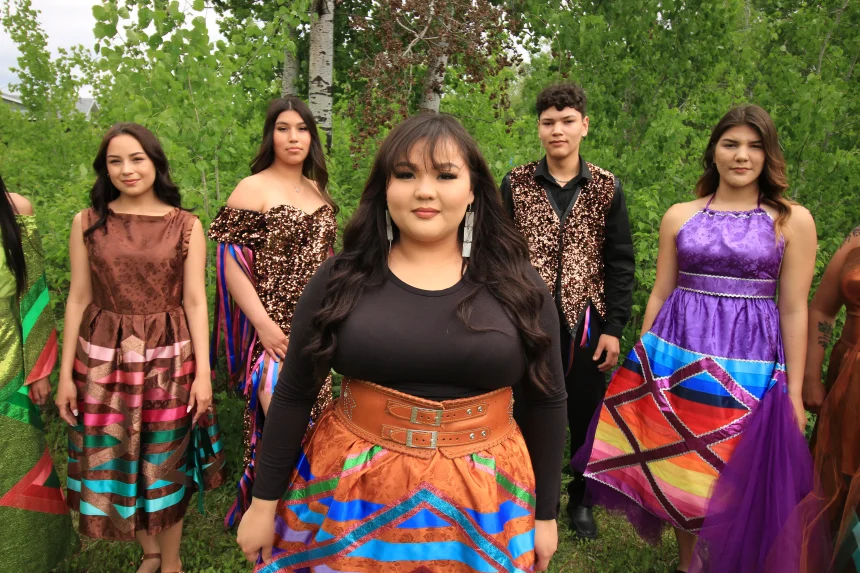On the second annual National Ribbon Skirt Day, the skirts are increasingly being worn in offices, at events and as everyday wear.
The day was created to spread awareness and normalize Indigenized clothing after Isabella Kulak, who was 10 at the time, was shamed for wearing a ribbon skirt to a formal day at her Saskatchewan school in 2021.
With the support of her community and thousands of people across the country, National Ribbon Skirt Day was recognized in an act of Parliament in late 2022.
Traditionally, the skirts feature horizontal lines across ankle-length fabric. However, Indigenous designers are expanding the perception of what a ribbon skirt can look like.
Today, ribbon skirts are seen with appliqué, lace overlay and ribbons going in all directions, often accessorized with concho belts and beadwork.
Karonienhawe Diabo is the designer behind She Holds the Sky Designs based in Kahnawà:ke, south of Montreal.
She remembers when it wasn’t acceptable to wear ribbon skirts in public. But over the last 15 years, that’s been changing.
“Now you see ribbon skirts on a daily basis,” she said.
Diabo incorporates ribbon patterns not only on skirts but on pants, vests, shirts, scarves and jackets.
“There are so many artists that have inspired the ribbon skirt look,” Diabo said. Her designs brought her to runways including New York Fashion Week last year, something she once thought she could only dream about.
But as Diabo breaks down walls, she is careful not to disrespect the cultural elements in her modern designs. When she is unsure, she reaches out to family and friends for outside perspectives. She says she wants to maintain a balance between cultural history and everyday fashion.
Growing up in Ontario, outside of her community of Kahnawà:ke, Diabo didn’t feel Indigenous people were acknowledged. She says it’s beautiful to now see so many non-Indigenous people supporting National Ribbon Skirt Day.
“It has catapulted different designers into different designs. There is so much more work involved but it’s so nice to see people remaining true to themselves and their culture,” Diabo said.







